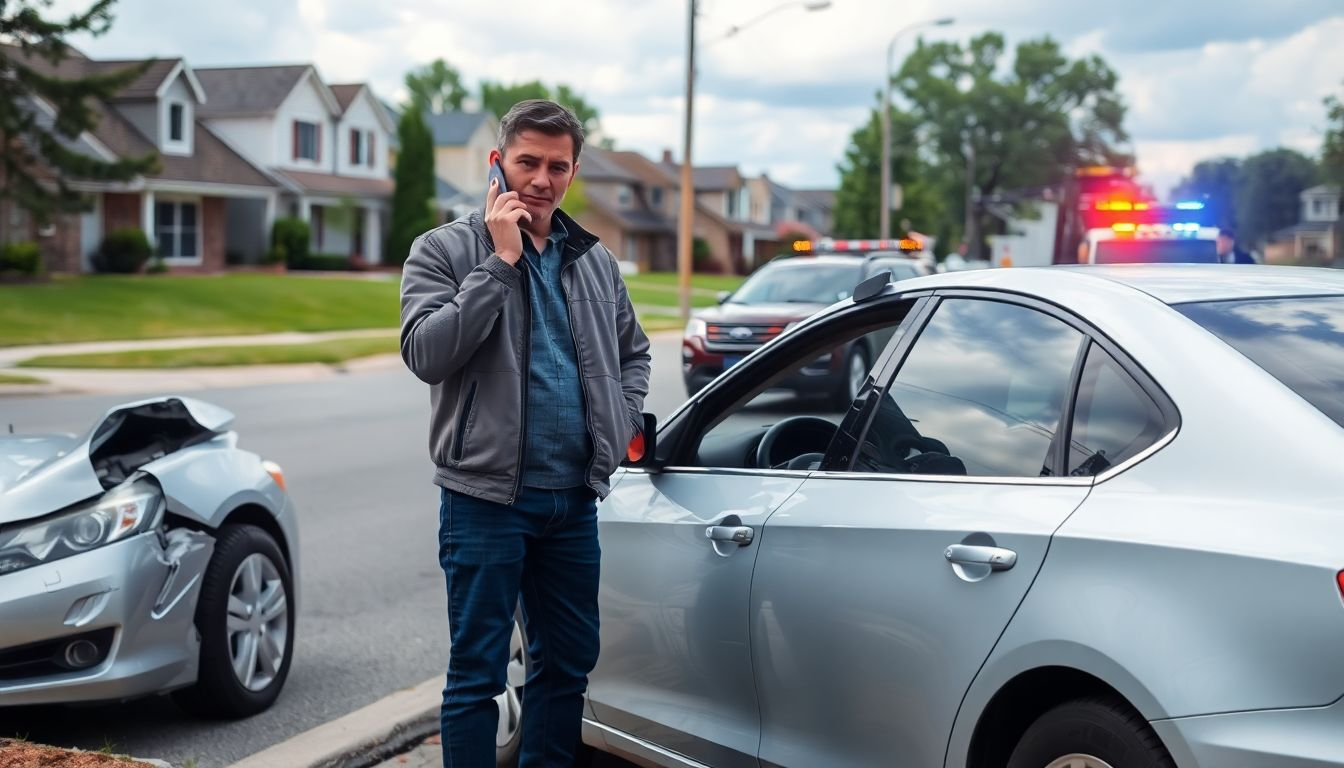What to Do After a Car Accident (Insurance Steps)
A car crash can be a disorienting experience, leaving you agitated and not knowing what to do. In the heat of the moment, getting your insurance right can prove to be the difference in getting back on the road quick and easy. From capturing the scene to making a claim, understanding how to navigate the insurance procedure is the key to looking after yourself and your wallet. Here, we'll walk you through the necessary insurance steps to follow after a car accident, so you can stay calm and confident in the face of an unpleasant situation. Let's begin the journey towards recovery!

Introduction
Getting into a car accident can be terrifying. Knowing what to do afterward becomes crucial to protect your legal rights and financial future. Many drivers make simple mistakes that cost them later—like not calling the police or failing to document the scene. These errors can lead to big headaches when dealing with insurance claims. The objective here is to walk you through the insurance process step by step after an accident. In this manner, you'll remain prepared, safeguard your interests, and make recovery easier.
Learning Immediate Steps After a Car Accident
Safety First
Safety comes first. If it is safe to do so, get your vehicle out of the traffic stream to prevent further accidents. Engage your hazard lights so others will know that there is a problem. If a person is injured or there is serious property damage, call emergency services immediately. Do not ignore injuries, and do not move injured individuals unless they are in immediate danger.
Documenting the Scene
Photographing is your best evidence later on. Take photos of car damage, street signs, and road surfaces. Take contact information from witnesses, if there are any. Use your phone to take descriptions of what occurred. Brief, detailed notes will serve as reminders later, particularly if your version of events must reconcile with police reports or insurance claims.
Reporting the Accident to Authorities
Most states mandate that you report to the police if a person was injured or there is more than a specific amount of property damage. Reporting the accident to the police isn't only legal; it's also an important documentation for your insurance claim. Be sure to obtain a copy of the police report—it may be the ticket for speedy processing or resolution of a dispute.
Getting in Touch with Your Insurance Provider
Notifying Your Insurer Immediately
The clock is ticking. Reach out to your insurer as quickly as possible—ideally within 24 hours or according to your policy. Numerous insurers have online interfaces or mobile apps that facilitate reporting. Document your calls, chats, and emails: record dates, times, and rep names you talk to.
Providing Accurate and Comprehensive Information
Tell a simple, truthful description of what occurred. Provide information such as date, time, place, and names of involved motorists. Support your story with your photos and police report. Don't admit fault on the scene—it may damage your claim in the future. Stay calm and be factual, even if the other motorist assigns blame.
Understanding Your Coverage
Prior to filing, examine your policy. Understand what type of coverage you have: liability for damage you inflict, collision for your vehicle, comprehensive for non-collision losses, etc. Examine your policy limits and deductibles. Having this knowledge in advance keeps expectations in check and avoids surprises.
Filing a Claim and Following Up
Completing the Insurance Claim Correctly
Complete your claim form thoroughly, either online or by phone. Upload or have handy documents such as accident photos, police reports, and estimates for repairs. Make copies of all that you submit. Errors or omissions can slow up your settlement.
Working with Adjusters
The insurance company will have an adjuster come out to inspect your car. Be upfront with the damages and how you were in the accident. Provide descriptive answers and share your pictures. If the company makes you a settlement, read it thoroughly. Take your time; you want something that covers repair and other damages.
Tracking and Managing Your Claim
Remain active. Check your claim status frequently online or over the phone with your insurer. Should there be delays or disagreements, politely and clearly communicate. If necessary, do not shy away from seeking legal advice—particularly if the payout is unjust or in case you are disputing.
Processing Repairs and Medical Claims
Selecting Approved Repair Shops
Most insurers insist that you use their network shops. These tend to be faster and cheaper. Get multiple estimates so you don't overpay. Make sure repairs meet your insurer's standards so your claim is valid.
Filing Medical Claims
Coordinate your medical care with your insurance. Pay all bills and doctor's reports in a timely manner. If you carry PIP or uninsured motorist coverage, know what's included. Maintaining records of your treatment prevents disputes over medical expenses.
Guarding Your Rights and Future Precautions
Seeking the Advice of an Attorney if Necessary
If the accident entails serious damage or liability, seek legal assistance. A lawyer can handle complicated claims or when insurance companies refuse to cooperate. Their counsel can avoid costly errors and safeguard your rights.
Preventing Future Accidents
Defensive driving and regular vehicle maintenance can lessen dangers. Have an emergency kit that includes basics such as first aid kit, flashlight, and your insurance details. Preparedness is key if something does not go right.
Conclusion
Handling a car accident is worrisome, but having an idea of what to do makes it achievable. Prioritize safety at once, record in detail, and report to the authorities. Contact your insurance quickly, provide clear info, and stay organized. Handling repairs and medical claims carefully can save time and money. Finally, always consider legal advice when needed and adopt safe driving habits. Being prepared means you’ll recover faster and protect your best interests in the long run. Review your insurance policy today so you’re ready if trouble ever comes your way.

Your comments